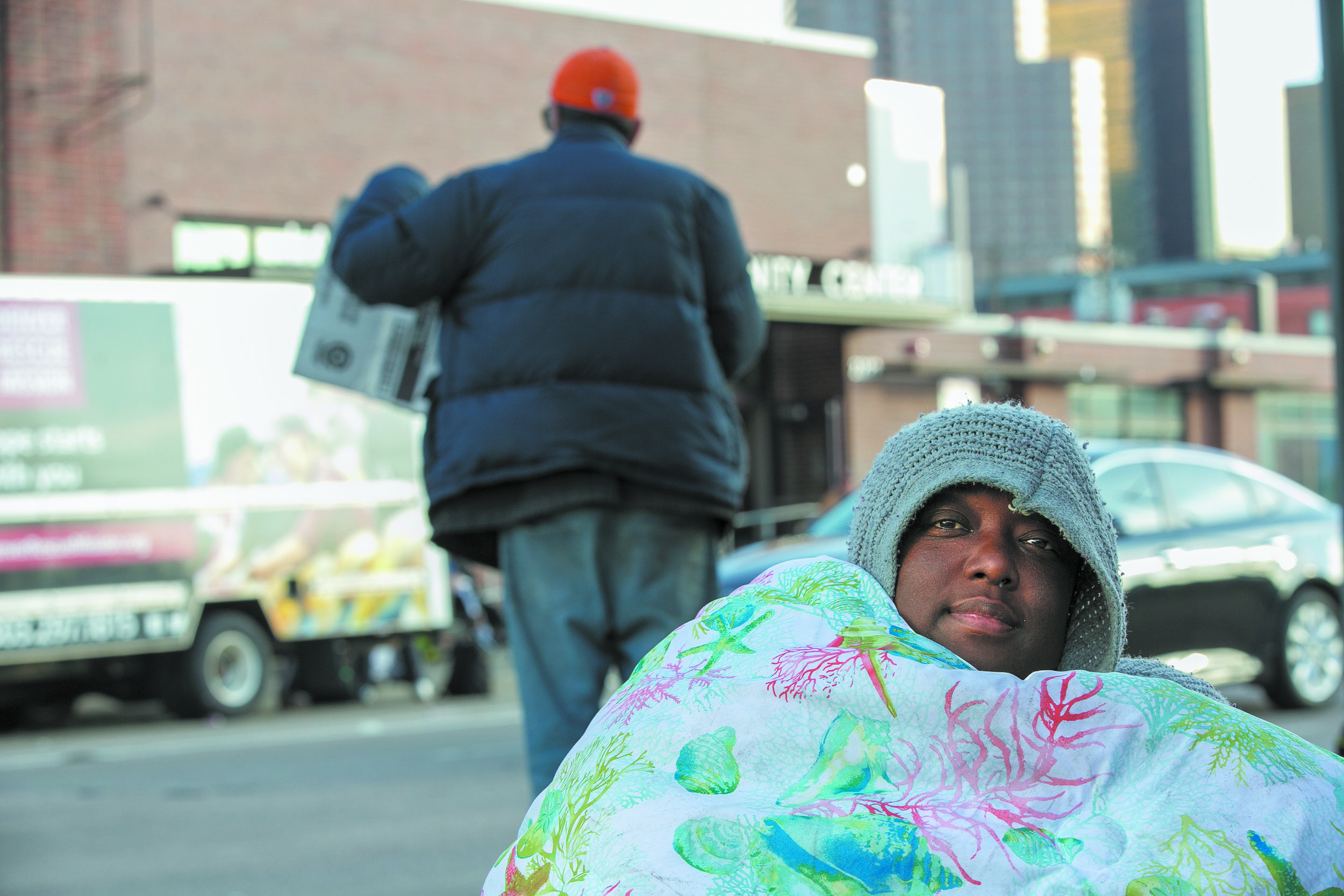Faces of the Camping Ban
Photos and Interviews by Giles Clasen
If Denver voters approve initiative 300, “The Right to Survive,” one of its greatest effects will be to overturn Denver’s ban on urban camping. The law has led to increased citations for those sleeping on the street, as well as increased “street sweeps” performed by Denver police. Police contact with homeless individuals had increased by 475 percent since 2014, and street checks have increased by 539 percent since 2014 according to a report released by the University of Denver’s Sturm College of Law last year.
As voters consider overturning the ban, the VOICE spoke to people sleeping on the street about the ordinance and how it has affected their experience with homelessness.
Greg Downs (Credit: Giles Clasen)
Greg Downs
The police do a run-through every night and break up camps preventing us from creating bigger crowds. (The camping ban) makes us camp alone, live alone. It takes away security and safety. You find different places to go because they keep taking our spots and our tents. It forces people like me to break into buildings, into boiler rooms to try to be safe. We break in less to hide from the weather but to avoid the cops and the camping ban. No one understands or cares that you get a ticket for just living. I have gotten over 100 tickets for trespassing but I can’t afford to pay them so I go to jail. It would probably be cheaper to give us housing. I’m sleeping in port-a-potty right now because no one bothers you there. ■
Mia Montoya (Credit: Giles Clasen)
Mia Montoya
I have to move twice a night no matter what. I never get a full night’s sleep. I get four to five hours of sleep a day, but never any in a row. I have to be at work every morning at 4:30 and I am exhausted. Nine times out of ten I am woken up each night by the police. I have been in jail three times for trespassing tickets I can’t afford to pay. Police have taken everything I own three times. They even took my grandma’s ashes and my daughter’s bronze shoes. They tell you your stuff is stored in a warehouse but trying to find it is impossible, and trying to get there when they’re open is impossible, so you just lose your things forever. It’s not important to them. You go to jail and get out to find everything you own is stolen. As a woman, I’ve had a lot of real bad stuff happen to me that I don’t want to talk about. The police don’t seem to care about that, but camping — you get a ticket. I am trying to save some money to get the hell out of here but it’s hard. You get caught in a trap when you’re homeless. ■
Tracy Seller (left) with wife Allena Hunn (Credit: Giles Clasen)
Tracy Seller and Allena Hunn
You can’t sit down. You can’t sit down anywhere. If you do the cops jump on you. I carry as few things as I can because I have MS [Multiple Sclerosis]. I pay for a storage shed to try to protect my things. If you carry a backpack people know you’re homeless. Then you are a target. They use [the camping ban] to make us hide. They use it as a weapon. I feel subjugated by the rules. They use it to keep us away. We try to pay our way but we’re poor and homeless and that’s a crime here. ■
Shecka Williams (Credit: Giles Clasen)
Shecka Williams
When you’re homeless people want to shrug you off. They don’t care. The city cares so little they are willing to spend a fortune fighting for the camping ban in court rather than fighting for us out here. I have been sick for three months with influenza, and trying to get off the street, trying to get a home, trying to get a caseworker but it feels hopeless. It is clear to us Denver doesn’t care about us. ■




